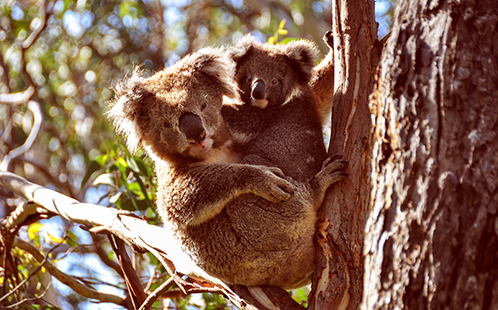Stress and habitat linked to koala recovery

New research led by Western Sydney University Stress Lab’s Dr Edward Narayan, has found the psychological state of wild koalas and the location they are rescued from, can have significant impacts on their chances of recovery and rehabilitation.
The research, which used faecal sampling to assess rescued koalas admitted to the Adelaide Koala and Wildlife Hospital in South Australia between 2015 and 2016, focused on quantifying the stressors experienced by koalas in the wild such as trauma and disease.
“Koalas are often rescued without obvious signs of injury such as burns or injuries from animal attacks or car accidents — but that doesn’t mean these animals aren’t harbouring physiological stress that could impact on their recovery,” said Dr Narayan.
The study, published in Frontiers in Endocrinology, represents the first time physiological stress has been assessed in wild rescued koalas.
“Different levels and causes of stress were recorded in koalas rescued from both semi-rural and urban environments.
“Notably, koalas in semi-rural areas recorded higher levels of stress compared to their urban counterparts, with road collision the leading cause of stress here.
“Although it may seem odd, koalas, especially those living in green-urban spaces can be far more resourceful — and learn to adapt to humans early on. Koalas living in rural environments are more likely to struggle with resource reduction associated with human-induced environmental change,” said Dr Narayan.
It is more urgent than ever before to provide koalas with access to food trees, shade and ecological networks so that they can continue to survive without undue stress.
The study also confirmed a link between physiological stress responses and koala habitats, types of prior stress experienced and the clinical treatment they receive, highlighting the importance of ongoing monitoring of rescued koalas to improve their clinical care and ongoing management.
ENDS
27 February 2019
Mobile options:

